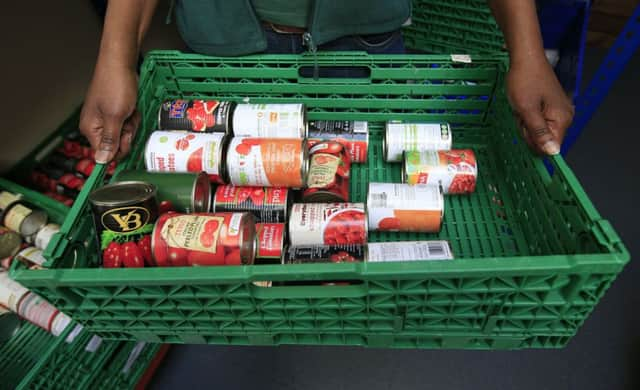Readers' letters - May 2


The growing demand for for food banks is a terrible indictment of our economy and the politicians who control it.
That people can’t work and pay their own way as previous generations did is a disgrace!
Advertisement
Hide AdAdvertisement
Hide AdI was 10 years old before post-Second World War. Food rationing ended, but although there were no luxuries we never went hungry.
Prime Minister Harold McMillan was right when he said: “You’ve never had it so good” almost 60 years ago, when the long dreamed of £1,000 a year income was within the grasp of many working class people, enabling even home ownership for some.
Where did it go wrong? Well, the 30-odd years of Mrs Thatcher and Tony Blair in power saw many changes, not for the better. Major industries like coal, steel, shipbuilding, printing, textiles and clothing manufacture and associated trades were largely sacrificed to the emerging ‘global’ economy – with even coal imported. Advanced technology also played a big part in our economic decline, as this eliminated many skilled craft jobs, but that’s progress. It can’t be stopped. The main problem is that very little new work was ever introduced other than a few jobs in finance, legal, digital, retail and leisure, but these are not enough. The fact that some in full time work get credits or housing benefit shows that there are no proper jobs and the wages of the ones that exist are too low. Even the living wage is poor when set against the cost of living.
DS Boyes via email
The irony
of politics
I write in response to Cyril Olsen, a “supporter of Labour for the past 60 years”, as he puts it, extolling the virtues of unelected Tory Prime Minister Theresa May (WP Letters, April 29).
Advertisement
Hide AdAdvertisement
Hide AdWhat is it with the older generation and Brexit, that leaving Europe seems to be of paramount importance to them?
With the greatest of respect, it is not they who will have to live with the long-term economic consequences of this decision.
Is it not ironic that so many dyed-in-the-wool lifelong Labour supporters, who may well have raised a glass at the demise of Margaret Thatcher four years ago, are now championing someone who, in terms of her appearance, mannerisms and policies, seems to be the spitting image of the Iron Lady?
Can anyone tell me when the Conservative party primarily stood up for the interests of working-class people in post-industrial towns in the north of England?
Advertisement
Hide AdAdvertisement
Hide AdIn a democratic system, political parties are at liberty to propose their own policies in their election manifestos, and if they win votes by doing so, then that is “the will of the people”.
No voter is bound indefinitely by a decision they might have taken in the past, otherwise MPs, once elected, would be in office for life, or at least as long as they wished to remain in Parliament.
In essence, the electorate are entitled to change their minds as and when circumstances change.
They are as much at liberty to review their previous decision in a referendum as in a General Election.
One Parliament cannot bind its successor.
Advertisement
Hide AdAdvertisement
Hide AdThere is nothing undemocratic about the Liberal Democrats, or any other party, standing on a platform of opposing Brexit.
It is for the voters to decide whether that is what they want, bearing in mind that there will be a crop of 18-year-olds now able to cast their ballots in the forthcoming election, who were too young to do so one year ago for the referendum.
Research suggests that as many as three-quarters of that age group have pro-European views.
The Brexit camp seem to use the term “democratic vote” rather selectively.
NP Johnson
Address supplied